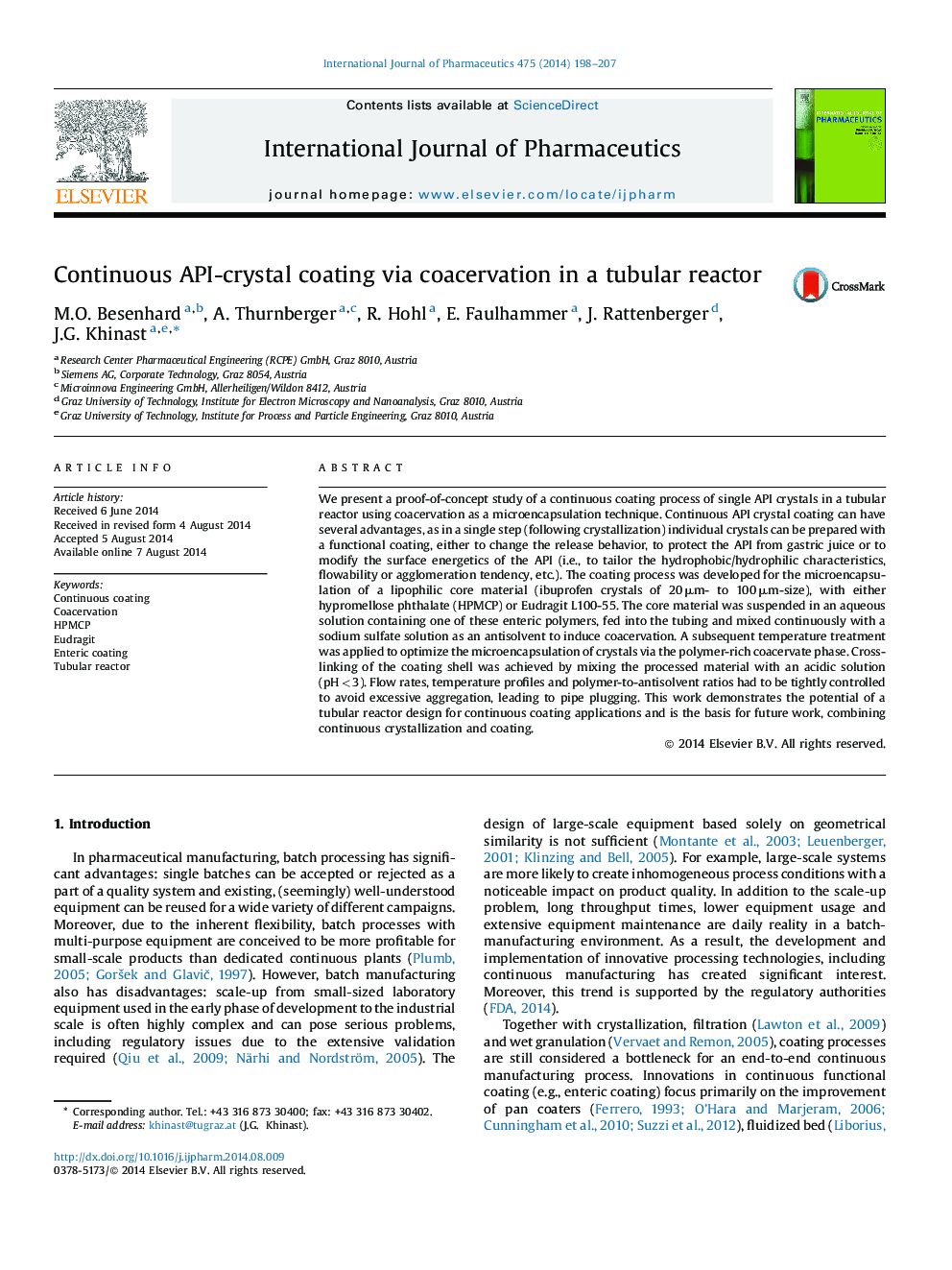| Article ID | Journal | Published Year | Pages | File Type |
|---|---|---|---|---|
| 2501642 | International Journal of Pharmaceutics | 2014 | 10 Pages |
We present a proof-of-concept study of a continuous coating process of single API crystals in a tubular reactor using coacervation as a microencapsulation technique. Continuous API crystal coating can have several advantages, as in a single step (following crystallization) individual crystals can be prepared with a functional coating, either to change the release behavior, to protect the API from gastric juice or to modify the surface energetics of the API (i.e., to tailor the hydrophobic/hydrophilic characteristics, flowability or agglomeration tendency, etc.). The coating process was developed for the microencapsulation of a lipophilic core material (ibuprofen crystals of 20 μm- to 100 μm-size), with either hypromellose phthalate (HPMCP) or Eudragit L100-55. The core material was suspended in an aqueous solution containing one of these enteric polymers, fed into the tubing and mixed continuously with a sodium sulfate solution as an antisolvent to induce coacervation. A subsequent temperature treatment was applied to optimize the microencapsulation of crystals via the polymer-rich coacervate phase. Cross-linking of the coating shell was achieved by mixing the processed material with an acidic solution (pH < 3). Flow rates, temperature profiles and polymer-to-antisolvent ratios had to be tightly controlled to avoid excessive aggregation, leading to pipe plugging. This work demonstrates the potential of a tubular reactor design for continuous coating applications and is the basis for future work, combining continuous crystallization and coating.
Graphical abstractFigure optionsDownload full-size imageDownload high-quality image (167 K)Download as PowerPoint slide
